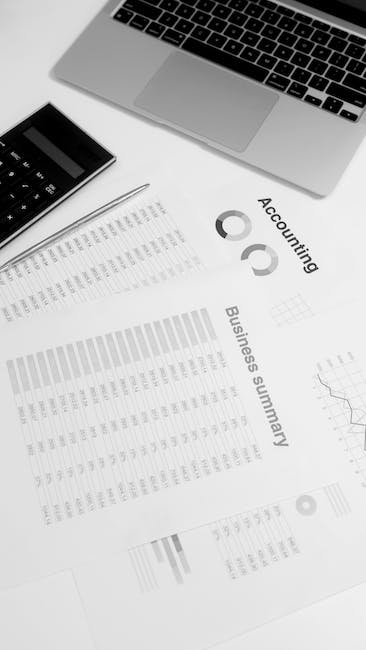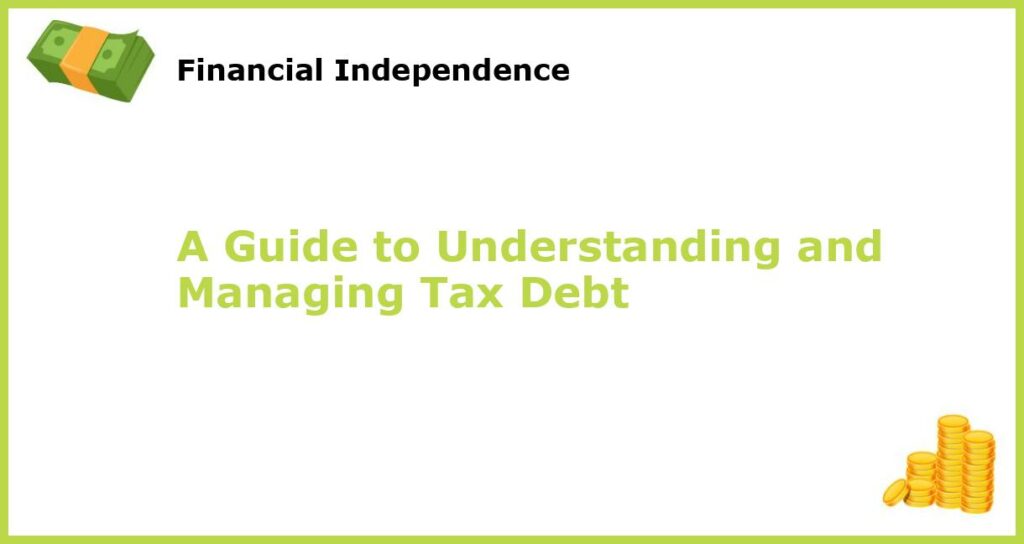As Benjamin Franklin once famously wrote, “In this world, nothing can be said to be certain, except death and taxes.” Tax debt is a problem that many individuals and businesses face. If you owe back taxes, it can be stressful and overwhelming. However, it is important to know that there are steps you can take to manage your tax debt effectively.
What is Tax Debt?

Tax debt is any unpaid taxes that you owe to the government. This can include federal, state, or local taxes. When a taxpayer fails to pay their taxes on time or in full, interest and penalties may be added to the amount owed, resulting in tax debt. It’s important to note the difference between delinquent taxes and a tax liability, which is the amount of tax owed after penalties and interest. Penalties can include a failure to file, a failure to pay, accuracy-related penalties, or penalties for returning checks to the IRS (for insufficient funds for example). The IRS will charge interest as well, which is compounded daily and can vary depending on current rates.
Understand Your Options

When you have tax debt, it is important to understand your options. You can choose to pay the full amount owed, negotiate a payment plan, or even settle for less than what you owe through an Offer in Compromise. You can also take advantage of installment agreements which are a common option for taxpayers with less than $50,000 in liabilities. These agreements require a minimum monthly payment, with the amount determined by taking the total amount owed in taxes, interest, and penalties and spreading it out over a period of time. The maximum time frame for an installment agreement will generally be 72 months in most cases.
Act Quickly

If you receive notice of tax debt, it is important to act quickly. Ignoring the notice will only make the problem worse. Instead, reach out to the tax authority to discuss your options and create a plan for repayment. You should also understand that the longer you wait to address your tax liability, the more difficult and costly it may be to resolve.
Consider Hiring a Professional

If you are unsure how to manage your tax debt or need help negotiating with the tax authority, consider hiring a professional. A tax lawyer or accountant can provide valuable assistance and help you understand your rights as a taxpayer. They can provide guidance on which strategies may be appropriate for your situation, and also help you navigate any potential complexities involved in resolving your tax liability. A licensed tax professional can help you avoid mistakes and can represent you in any discussions with the IRS.
Don’t Ignore the Problem

Ignoring tax debt will only cause the problem to worsen. Late payments and interest will continue to accrue, making it harder to repay the debt. By taking swift action, you can start the process of managing your debt and finding a solution that works for you. This is why it’s crucial to open all mail from the IRS, as ignoring it can lead to harsher enforcement. The IRS can legally levy and attach wages, bank accounts, Social Security, Veteran Benefits and other sources of income.
Keep Good Records

Keeping good records can be helpful when it comes to managing tax debt. Make sure to keep copies of all tax filings, payment receipts, and correspondence with the tax authority. This can help you dispute any errors or discrepancies and provide evidence of payment if needed. To avoid interest and penalties, it is important to file all tax returns on time, even if you cannot afford to pay the tax you owe. Keeping track of when payments were made and how much money has been paid can help you avoid problems down the line when disputes with the IRS may arise.
Know Your Rights

As a taxpayer, you have rights when it comes to managing tax debt. These include the right to understand the tax code, the right to appeal a decision, and the right to be treated fairly by the tax authority. The Taxpayer Bill of Rights provides a comprehensive list of protections and ensures a fair process from the IRS. The IRS must keep all taxpayer information confidential and may not use their investigative powers for non-tax activities.
Create a Plan to Repay

Creating a plan to repay your tax debt is crucial for successfully managing the debt. This may involve negotiating a payment plan with the tax authority or finding other ways to reduce your expenses in order to pay down the debt. One option is to seek an Offer in Compromise which is an agreement between the taxpayer and the IRS that enables you to settle for a reduced amount. This is based on an ability to pay calculation, and requires financial statements and asset information to consider.
Stay Positive

Managing tax debt can be a challenging and stressful experience. However, it is important to stay positive and focus on finding a solution. With the right approach and mindset, it is possible to successfully manage tax debt and move forward with financial stability. The key is to take action and remain proactive in addressing your tax liability. Ultimately, with diligence and persistence, you can overcome this hurdle and return to a stable financial footing.







